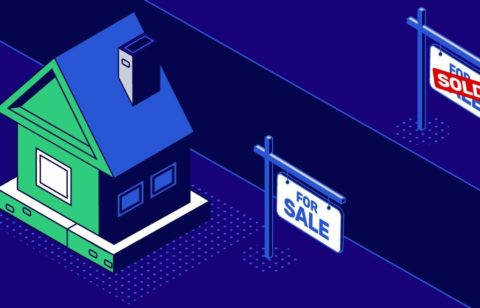You have been faithfully investing in your 401(k) for years. Maybe you weren’t always as forward-thinking with your spending habits and racked up a considerable amount of debt. If your 401(k) is like a savings account for your future, why not use it to pay off that outstanding debt?
You can, but the real question is: should you?
What Is a 401(k)?
A 401(k) is a company-sponsored retirement program that allows employees to make pre-tax contributions for investment. Employees have complete control over the funds. Most 401(k) plans offer a mix of stocks, bonds, and money market accounts with varying levels of risk. Many companies offer contribution matching, so if an employee invests $2,000 a year into his or her 401(k), the company will match it and put in $2,000, usually up to 3% of the employee’s yearly salary.
The employee can put in more, but the employer won’t match it. A contribution limit exists because the money is pre-tax, so the IRS isn’t collecting taxes on it. In 2023, the limit that could be put into a 401(k) increased to $22,500 to keep retirement savings on par with inflation and income growth.
Cashing Out a 401(k) to Pay Bills
Cashing out your 401(k) is usually a bad idea. The COVID-19 pandemic proved that saving money—especially for retirement—should be one of your top priorities. In the event of an emergency, delaying your retirement is one of the last things you want to do. Your retirement savings should stay put so they can grow.
If you do decide to cash money out of your 401(k), you’ll be hit with an immediate 10% early withdrawal penalty if you’re under 59 ½ years old, and you’ll have to pay income taxes on it as well.
If it took you a long time to build up your retirement funds, it could take many years for you to catch up again. During that time, you would be missing the interest that your money would have made by being invested. If you are remotely close to retirement age, it’s likely you won’t fully recover the loss.
Many people who cash out money from their 401(k) do so because they’ve changed jobs—perhaps it’s easier than rolling it over into a new account. It could be that it’s just too tempting not to cash the check. Remember, it’s not a bonus for finding a new job; it’s money you have been saving and should be put into another retirement account.
Borrowing Money from a 401(k)
You can borrow against your 401(k); however, you must pay it back with interest. The good news is that the loan interest goes into your 401(k) account so you’re essentially paying yourself for the use of your money. Interest is typically the prime rate plus 1%, which is better than most credit cards or personal loans.
A loan on your 401(k) can impact your retirement savings. The money that you took out is no longer earning money for you, which can be quite a bit of missed earnings if it’s a good year for the market. In addition, 401(k) loans can be difficult to discharge if you ever find yourself filing for bankruptcy. In this case, there are usually fees or penalties involved.
Loans are usually for a term of five years or less. If you leave your job for any reason during that time, you will have to pay off the loan immediately.
People Also Read
Other Options
You don’t have to dip into your retirement plan. There are many other good options for dealing with your debt while continuing to contribute to your 401(k). A loan on your 401(k) should be your last resort. Look into the following options first.
Debt Consolidation
This involves taking your high-interest debt and rolling it into a single, lower-interest loan. It can save you money and help you get your debt paid off faster. This can be done through a personal loan (a good choice because, unlike credit cards, they have fixed terms and fixed interest rates), a home equity loan, a mortgage refinance, or a transfer to a 0% credit card.
Debt Counseling
Consumer credit counseling organizations are typically nonprofit entities. They charge relatively low fees to help you pay off debt by negotiating it, as well as offering financial education and budgeting.
Debt Settlement
Debt settlement companies such as National Debt Relief can help consumers negotiate their debt down to a final payment, potentially saving them money. It takes patience, but the savings on your debt can be significant.
Bankruptcy
Chapter 7 bankruptcy allows you to have your debts discharged and your possessions sold to pay your creditors. Chapter 13 sets up a limited payment plan that allows you to keep your things and pay your creditors a portion of what you owe. The types of debt that you are allowed to discharge do not include student loans, child support, and most taxes.
Downsizing
If you own a home, it may be time to consider downsizing to a smaller home, a condo, or even an apartment to save on monthly costs.
Finding a Second Job
Try finding a flexible job that fits your schedule and dedicate all your earnings to paying off your debt. When your debt is finally paid off, you could have two reasons to celebrate: no more debt and no more second job!
Resolve Your Debt Now
No matter how you choose to handle your debt, it’s important to begin handling it sooner rather than later. Remember that pushing it off can only make the problem worse. Get a free savings estimate here.










